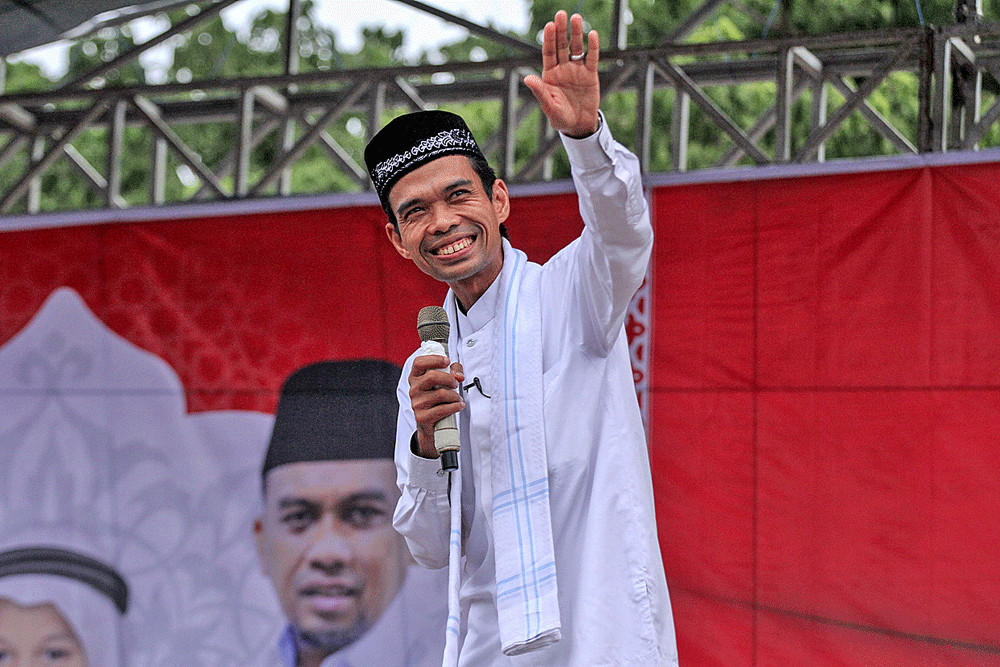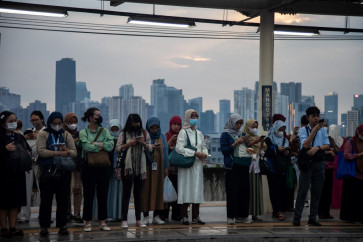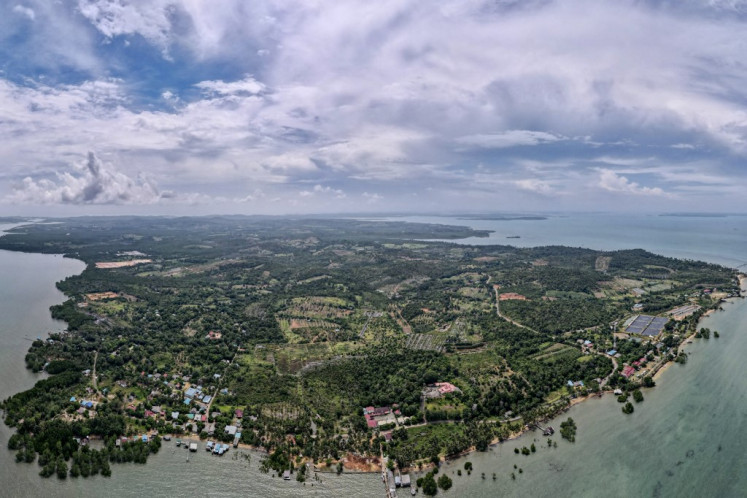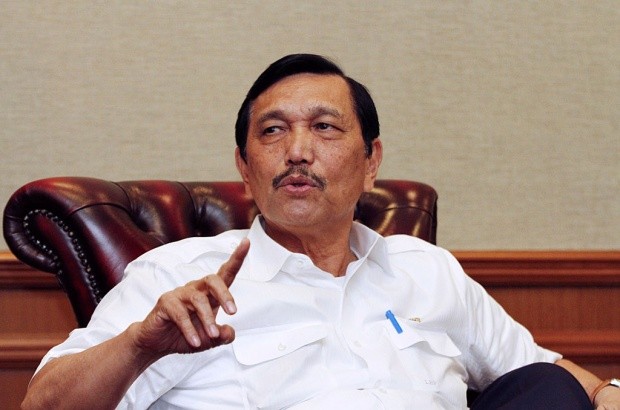Popular Reads
Top Results
Can't find what you're looking for?
View all search resultsPopular Reads
Top Results
Can't find what you're looking for?
View all search resultsSingapore denies Abdul Somad entry, citing ‛extremist views’
Abdul Somad Batubara and his entourage of six family members and friends arrived at Singapore's Tanah Merah Ferry Terminal at 2:30 p.m. on Monday from Batam, Riau Islands.
Change text size
Gift Premium Articles
to Anyone
S
ingapore has barred the entry of Indonesian Muslim preacher Abdul Somad Batubara, citing the preacher’s “extremist and segregationist teachings.”
Abdul Somad Batubara and his entourage of six family members and friends arrived at Singapore's Tanah Merah Ferry Terminal at 2:30 p.m. on Monday from Batam, Riau Islands.
Soon after arrival at port, Abdul Somad was told to wait for three hours and was interrogated by Singaporean immigration authorities for an hour before being refused entry, and told to return to Indonesia by the last available ferry.
On the next day, the Indonesian Embassy in Singapore sent a diplomatic note asking for clarification regarding the entry denial.
“The embassy received information from Singapore’s Immigration and Checkpoints Authority (ICA) that their refusal of entry was due to ‘being ineligible for the issue of a pass under current immigration policies’. The embassy has sent a diplomatic note to the Singaporean Foreign Ministry for clarification,” the embassy said in a statement.
Also on Tuesday, Singapore’s Home Ministry said that Abdul Somad's preachings were “unacceptable for Singapore’s multi-racial and multi-religious society.”
The Singaporean ministry cited Abdul Somad’s preaching that suicide bombings were legitimate in the context of the Israel-Palestine conflict, considering them as martyrdom, as well as his comments deemed denigrating of members of other faith communities and public-related non-Muslims as kafirs (infidels).
“A visitor’s entry into Singapore is neither automatic nor a right. Each case is assessed on its own merits. Although Somad attempted to enter Singapore ostensibly for a social visit, the Singapore government takes a serious view of any persons who advocate violence and/or espouse extremist and segregationist teachings,” Singapore’s Home Ministry said in a statement published on Tuesday.
On his Instagram account, Abdul Somad took a photo and a short video of himself in a two-square-meter “jail-like room” while waiting to be interrogated by the Singaporean immigration authorities.
In a Youtube video, Abdul Somad said that he intended to visit Singapore for a holiday and not for preaching or other kinds of activities, adding that he also had the proper documents needed for travel into Singapore.
Padjajaran University international relations expert Teuku Rezasyah said that Singapore, like any other country, held the sovereignty to accept someone to enter its country or not, although the Singaporean's public explanation of its refusal to allow Abdul Somad to enter the country was rather late.
“If the Singaporean authorities had explained the reasons earlier, it would be more understandable,” Rezasyah told The Jakarta Post on Wednesday.
Indonesians that want to go to another country should be well acquainted with its local laws and regulations to prevent them from being barred entry into it.
However, he said that the incident showed the extent of how stringently the Singaporean government screened people that wanted to enter its territory, even having dedicated files on them, which Indonesia should also learn from.
He also said that the Indonesian Embassy in Singapore had done the right thing in asking for clarification through official channels by sending a diplomatic note.
“If not, then the Indonesian government would be deemed not protecting its citizens [rights],” Rezasyah said.
In 2019, Abdul Somad was the center of a religious controversy due to a video depicting him saying that the Christian cross contained “an evil jinn” that wanted to convert people to Christianity.
Abdul Somad’s comment generated strong responses from the public, including religious scholars, criticizing Abdul Somad for propagating anti-Christian sentiment. Abdul Somad later clarified, saying only that he was merely responding to a question in a Muslim congregation, and not deliberately making an offensive statement.
In 2018, he was among several preachers who were not included in the Religious Affairs Ministry’s list of 200 moderate Islamic preachers.










